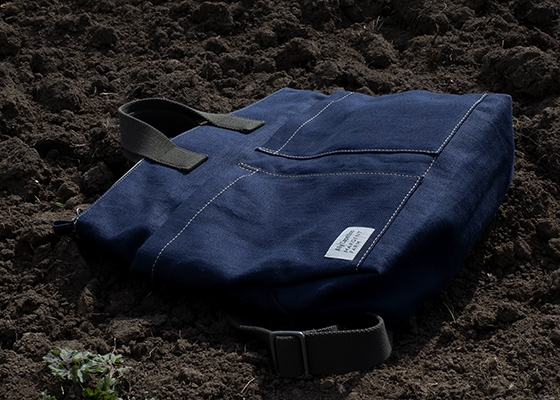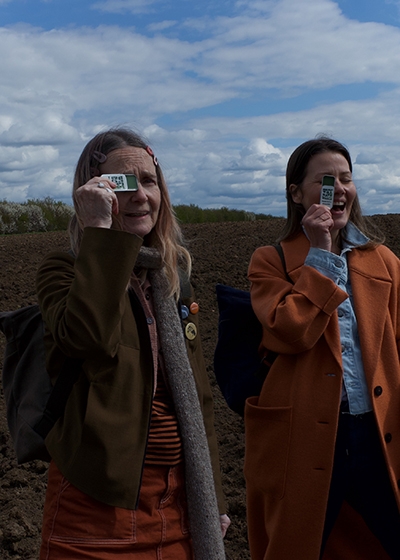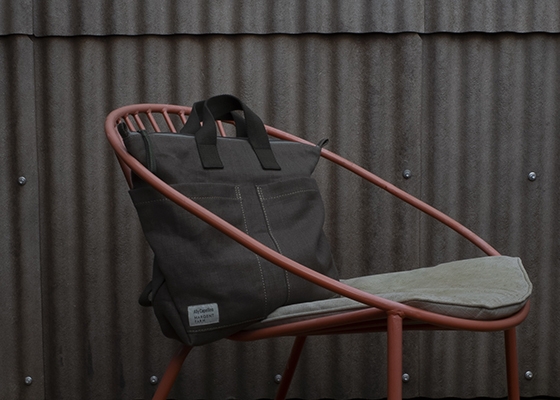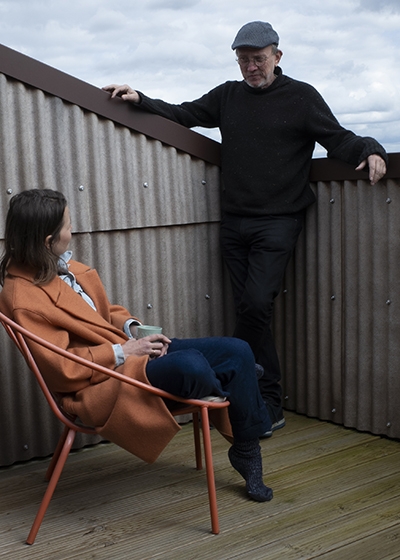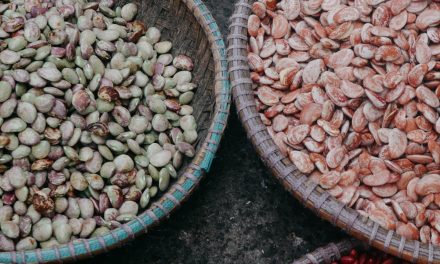Fashion Crush: Ally Capellino x Margent Farm, Why Hemp Will Save The World
All Images: Ally Capellino x Margent Farm
Due to a common misconception, hemp growth and production in the UK is lacking. We speak to the inspiring team behind a new project to shine light on hemp and how a humble plant might help to save the world.
How much do you know about Hemp? It’s not a trick question, don’t worry, but it is a tricky one. Hemp is one of the fastest growing crops on the planet, growing at the same rate as bamboo. Much link bamboo, it is well known for being low impact to grow. Growing hemp helps to purify our air and sequester carbon from the soil it grows in.
Hemp is commonly used in CBD skincare and holistic remedites (especially in the UK) delivering incredible benefits to our skin and bodies. Did you also know that as well as skincare, hemp can be used to create fabrics as well as construction materials? However despite it’s glowing CV, hemp has a bad rep, especially in the UK due to a close, Class B classified relative, marijuana. We investigate the issues around limiting the use of this amazingly sustainable crop and the people trying to get it recognised and produced in the UK.
Does Hemp Get You High?
Hemp is often confused with marijuana, a misconception which has served to make growing the plant very difficult in the UK. Hemp is actually biologically classified as cannabis, however, there are a few very important differences between them. Hemp, or cannabis sativa L, contains both CBD and a small amount of THC, although it should be noted not enough to produce intoxicating effects. Increasingly, hemp is being used for CBD based products like skincare. In many countries, hemp is differentiated legally from marijuana thanks to the difference in THC content.
What Can Hemp Be Used For?
Hemp has a myriad of uses when processed properly. The fibre can produce bioplastics, rope, paper and be woven into fabrics. Margent Farm in Cambridgeshire is one of only a few locations that grows hemp. They proudly produce a variety of products from the plant too. Their farmhouse was built using hempcrete, processed from their first year’s fibre crop. Hemp fibre corrugated sheets are 60-70% cellulose which makes them strong but very low carbon. Margent Farm also produce their own cannabis balms and oils, as well as fibrous homeware products.
Undoubtedly hemp is pretty amazing. However as we discovered when we met Margent Farm co founder Fawnda Denham, only 3,000 acres of hemp crop exist in the UK. Thanks to the fact that it contains very small amounts of THC, when cannabis was made illegal in the UK in 1920, hemp experienced a decline. It is now subject to crippling legislation, making it very unfavourable to grow. This is despite it’s incredible properties as a rotational crop. “I have pictures of when we took over Margent Farm and the soil was dry like a parking lot in LA. A couple of years later after growing our hemp crops, it’s completely transformed,” Fawnda remembers.
Accessories and Activism
In an effort to get plant and it’s amazing applications recognised, she has teamed up with renowned designer Alison Lloyd, founder and designer of Ally Capellino. The pair discovered “a mutual interest in single handedly saving the world,” Ally told us from a Welsh farmhouse via Zoom, where she was staying with Fawnda. Together with her co founder Steve, Fawnda owned Ally Capellino bags, and would hang out with Alison at her Golbourne Road store. Inspired by each other’s work, they set about trying to co create a bag. First they tried using a hemp PLA (a bio based polymer) pressed material and canvas denim samples, however adding hardware was tricky. Instead, they settled on a simple textile only design. This had the added bonus of being vegan too.
It’s been a learning process for both. Ally admits that “I had a naivety around the subject. Fawnda was explaining the growing qualities of hemp and it hooked me in.” What really interested her however was the potential for linen and hemp to create a fabric industry in Europe. Linen is already having success in Europe, and even enjoying a resurgence on the catwalks, with more luxury brands than before utilising this natural and sustainable fabric. Hemp is similar to linen in that it grows well without intervention, and is biodegradable.
Do you work in sustainability?
The WIP is our new digital platform for eco aware brand founders, entrepreneurs and side hustlers. It's a place to find community as well as learning resources. Launching this Winter, you can sign up for updates below.
Traceable Fabrics
The pair are keen to showcase the amazing attributes of hemp as a material, both in fashion but other industries too. Creating a bag ethically and with traceability was key. However they struggled to find hemp fabric in the UK, thanks to the aforementioned tight legislation. Even though Margent Farm grow hemp, there are limited options for places to process and weave the fibre here in the UK. The pair believe more investment in infrastructure is needed to boost the industry.
Ally was eventually able to find an alternative in China, “in an area with organic vertical production,” she told us. “Vertical production is where, they grow the hemp, cut it, spin, weave, dye and sell it in the same vicinity,” she explained. This limits the energy and carbon output required to create the fabrics. While not perfect, it was the next best solution to other hemp fabrics she sourced, which often had opaque supply chains. The result is a simple yet stylish gender neutral backpack, designed with all the practicality of Ally Capellino’s signature styles. Plus is comes with small tin of field salve from Margent Farm.
Can A Bag Change the World?
Whilst the collaboration is an understated one, Ally and Fawnda hope that by starting an honest dialogue about the bags production, they can help a fairer and better hemp industry to flourish in the UK. “[Part of] the plant has to be burnt at the moment but we should be allowed to use it,” Fawnda explains. This is because of the low level THC content. Currently, the UK Home Office governs the licensing for hemp growing, instead of DEFRA (Dept for Environment, Food and Rural Affairs). The very nature of this classification breeds a dangerous misconception about growing hemp.
“For us to grow hemp, we just cover the costs,” she continued. “It’s good for the environment so we are satisfied with that.” However she admits that tight, misguided legislation is crippling the industry.
Whilst the barriers to hemp growing and production in the UK are frustrating, surely the benefits of growing such a replenishing and therefore sustainable plant are obvious? What was once a thriving cloth centre, is now a mess of red tape and cheap fabric imports. Now that Great Britain is no longer part of the European Union, we should seize opportunities to create these home grown industries for ourselves. Fawnda agrees, “We’d like to see a body of brands get together to lobby the government about this.”
British wool and hemp could offer huge opportunities to create jobs and infrastructure in areas currently lacking it. As well as marking the island out as a respectable producer of natural and highly sustainable fibres. We truly hope that through highlighting issues such as this, and people like Ally and Fawnda and Steve beginning discussions through the items we buy, that we can begin to see natural resources for what they are. Not only a better substitute for fabrics made from oil and plastic, but fabrics that give back to our ecosystems and to the people that live within it.
By Lucy Kebbell
Did This Put A Smile On Your Face? Why Not Subscribe?
If you enjoyed this then theres plenty more on our email newsletters that you'll love. Whether you're a sustainable newbie or an eco conscious pro, our bi monthly emails will inspire you to live sustainably and ethically.

